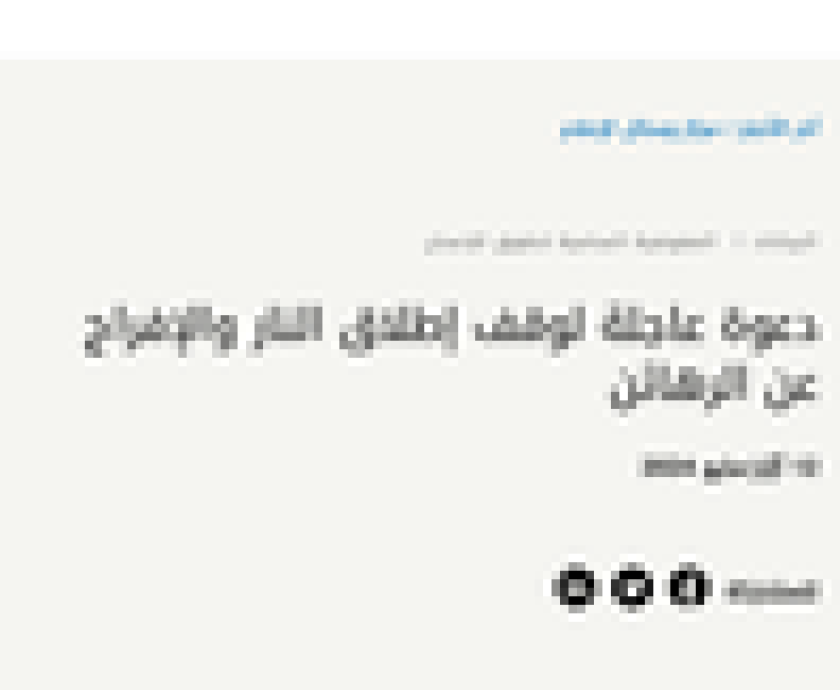Shortly after I started my first human rights job in 1986, Amnesty International issued an alert about a group of Algerians sentenced to up to three years in prison for creating the country’s first independent human rights league.
Click to expand Image
Ali Yahia Abdennour, long-time president of the Algerian League for the Defense of Human Rights, receiving an award from Human Rights Watch in New York in 1992.
© 1992 Human Rights Watch
But things changed after popular protests rocked Algeria in 1988, forcing the one-party state to undertake reforms that included legalizing, in 1989, independent associations, including the Algerian League for the Defense of Human Rights (Ligue Algérienne pour la Défense des Droits de l’Homme, LADDH), whose founders were the subject of the Amnesty International bulletin.
The league became a fixture of the transnational Arab human rights movement in the early 1990s.
Those events came to mind as I learned of an Algerian court’s decision, issued in 2022 but made public in January 2023, to dissolve the league, in response to a petition by the ministry of interior. The court found that the group had violated Algeria’s regressive law on associations by failing to “respect national constants and values” when it met with nongovernmental organizations “hostile to Algeria” and engaged in “suspicious activities” such as “addressing … the issue of illegal migration” and “accusing the authorities of repression of protests.”
The LADDH loudly denounced abuses during the bloody 1990s. After the terrorism and savage repression of that decade subsided, the League accompanied families of the disappeared in demanding answers and justice. Recently, it supported protesters of the peaceful Hirak movement that burst onto the scene in 2019, demanding political reform. Ali Yahia Abdennour, who was among those arrested in 1985 and served as president of the LADDH for decades, died at 100 in 2020.
The LADDH is the latest of several independent organizations authorities have shut on flimsy pretexts. They have jailed hundreds of Hirak protesters for peaceful expression and practically obliterated Algeria’s independent media – another product of the 1989 reforms – most recently by arresting on December 24 Ihsane Kadi and sealing the offices of his two online outlets, Radio M and Maghreb Emergent.
Fearing arrest, activists have been fleeing the country when they have not been arbitrarily blocked at the border, including three prominent League figures now in exile in Europe.
The pretexts used to shut Algeria’s flagship human rights organization are no less absurd than those used to convict its founders four decades ago. Though much has changed since the 1988 protests, Algeria is governed once again by those who brook almost no dissent.



